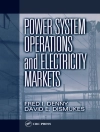Co-written by a pioneer of the sustainability movement, this groundbreaking volume offers a new way of thinking about the economics of sustainable energy, a goal that has eluded scientists and economists for decades.
Every year, as soon as reports on global economic inequality remind us about the direction our civilization is heading, there is a hysterical reaction, but hysteria dies down within weeks and we go back to the lifestyle that brought us here today. Often the blame is laid on the Millennial generation for their ‘apathy, ‘ ‘lust for comfort, ‘ and ‘bratty’ attitude. Yet, business insider surveys indicate it’s the same Millennial generation that overwhelmingly cares for the state of the world and the direction in which our civilization is heading. Nearly 50% of them ranked climate change and destruction of nature as their primary concern. This is followed by concern for war and global conflict, and then global economic inequality. The vast majority of those surveyed are willing and eager to make lifestyle changes. This book breaks open the hypocrisy of our civilization and stops the blame game in its tracks and identifies the root causes of today’s world economy, ecology, and global politics.
The book demonstrates that changes in lifestyle are necessary but not sufficient. No economic policy or technology development mode has a chance to survive, let alone thrive unless supported by the political establishment. In this process, the government plays a pivotal role. The challenge is to change the attitude of the government from a ‘self-serving’ controlling mode to a representative philanthropic mode. This new system of economic development and political governance is inspired by a long-forgotten understanding of political economics: medieval Islamic economics. In reviewing the history of economics from trade, currencies, and interest, the strengths and weaknesses of various economic developments over our centuries are evaluated. Based on the historical analysis, a step by step procedure is outlined for this fundamental change in our society today. As a whole, this book is the first in the modern era to offer such a comprehensive analysis, complete with solutions to the entire crisis of today’s civilization.
Over de auteur
Jaan S. Islam is a research associate at Emertec Research and Development Ltd. and graduate student and SSHRC scholar at the University of British Columbia. He has written several books and articles in the field of political science and economics, focusing on the economics of energy and sustainability.
M. R. Islam, Ph.D. is the President of Emertec Research and Development Ltd. and an adjunct Professor at Dalhousie University, where he was Canada’s first Killam Chair in petroleum engineering during 2000-2005. One of the world’s most well-known engineers spearheading the push towards sustainability in energy engineering, he has written dozens of books, hundreds of journal articles, and is known as one of the most prolific and well-respected petroleum engineers in the world. In the 30+ years of his professional career, Professor Islam has held faculty positions with seven different universities and supervised over 150 research students and post-doctoral fellows, and he has been and continues to be on the editorial boards of a number of scientific journals.
Meltem Islam is a research associate with Emertec Research and Development Ltd. She received a BSc in Econometrics and an additional degree in Insurance as well as Masters in Education (Mount St. Vincent University, Canada).
M.A.H. Mughal is a prominent philanthropist, author, speaker, mentor and a business consultant in the areas of strategy, innovation and sustainability. As a senior executive in the banking & finance industry, he has designed and led transformation programs. He has served on the Board of Directors of various companies including Emertec.












